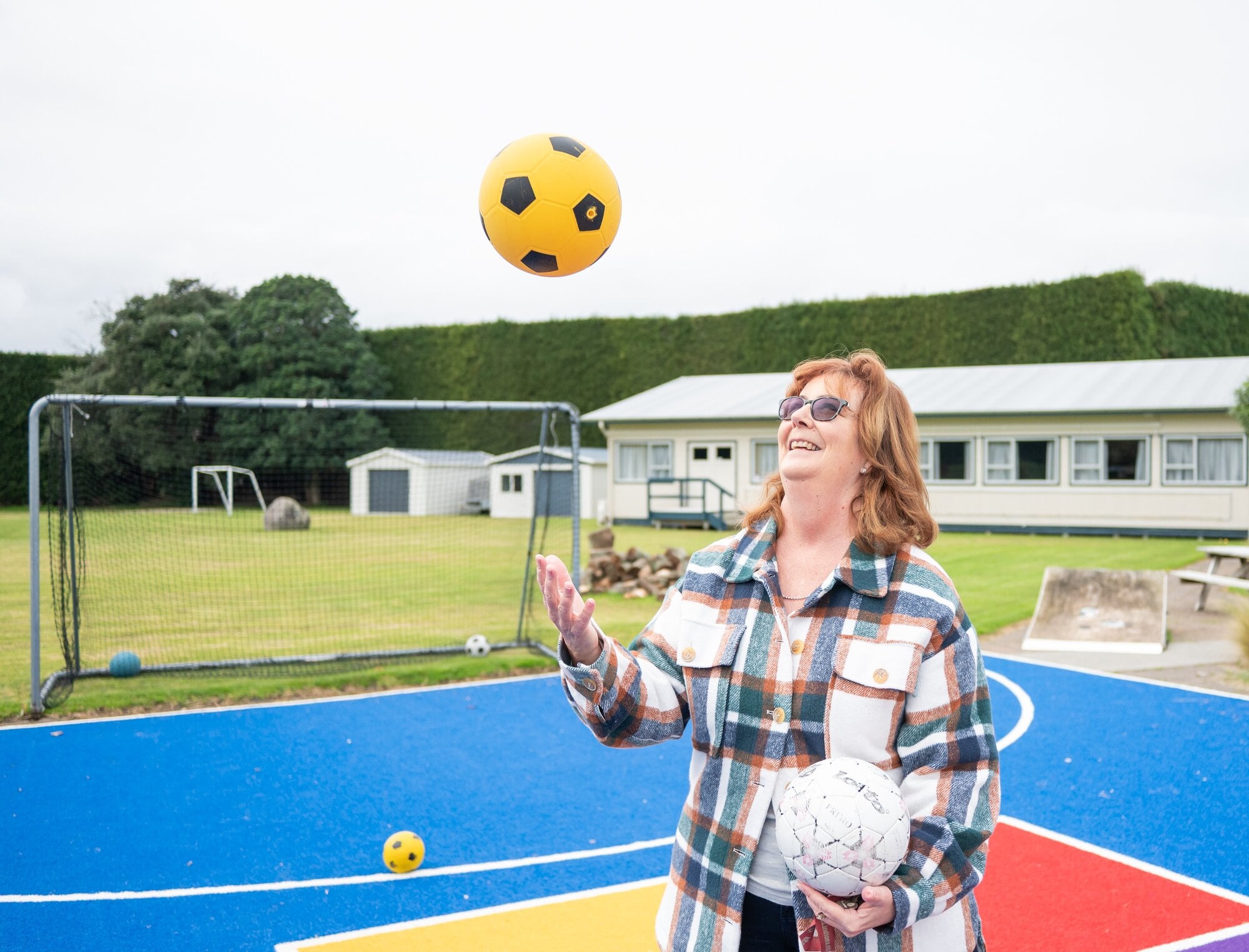Matahui School “went to war” and remained open thanks to the tireless efforts of parents and the school community, according to principal Mary Woods.
The independent primary school near Katikati had been on the brink of closure in May but had now secured its long-term future.
In a last-ditch effort to prevent closure, parents formed working groups, each tasked with a dedicated mission. Some contacted politicians, others wrote letters, and all played their part in keeping the school’s doors open, said Woods.
“When I reflect on what happened, one could call it a movement – power to the people.”
A significant number of students at Matahui School are neurodiverse, though the school also caters to neurotypical learners. “Most of our children have learning disabilities that fall under the umbrella of neurodiversity,” said Woods. “Dyslexia, dysgraphia, dyscalculia and dyspraxia are common.”
Unique curriculum
Now that the school’s immediate future is secured, its focus can return to delivering its unique curriculum, said Woods.
“Matahui offers a holistic curriculum that encourages critical thinking and real-world connection. It is a living, breathing example of what education can be.”
Woods said the school has 49 students and four teachers, and its approach is grounded in the theory of multiple intelligences. “Everybody comes with a strength and an area they need to work on. At Matahui, we individualise learning around each child,” she said.
Established in 1988, Matahui School had built a strong and supportive alumni network, which mobilised quickly in the school’s recent time of need.
An influx of donations followed news of the closure, and enough money was raised to secure the school’s long-term future, according to board chairperson Craig McCullough.
Keeping the school open enables it to continue providing education for neurodiverse students – however, the high tuition fees, at $13,000 per annum, remain a barrier for some families, McCullough said.
“We try to make it as affordable as possible. We’re a not-for-profit, but we do need to cover our costs,” McCullough said.
A dead end
Despite the community’s generosity, McCullough said the school would like to reach a point where it no longer depends on such support. He said he expressed hope that the school could one day transition to a charter school model. “We’ve sort of hit a dead end,” he said.
As previously reported by SunLive in May, the school applied in 2024 to become a charter school but was declined by the Charter School Authorisation Board.
“Private schools are already provided with flexibility, can innovate, and generally perform strongly on national assessments such as NCEA,” the board wrote in its decision.
In a letter to NZME, in May, Charter School Authorisation Board chairperson Justine Mahon clarified that a charter school can be established in two ways: either by a sponsor applying to develop a new school, or by a state or state-integrated school converting to charter status. “Under the legislation, private schools can’t convert to a charter school,” Mahon said.
This means that an independent school, such as Matahui, would first need to close before a sponsor could apply to open a new charter school in its place.
Given the constraints of limited funding, Mahon said the board prioritised applications that are practical, cost-effective and support the long-term success of the charter school system.

